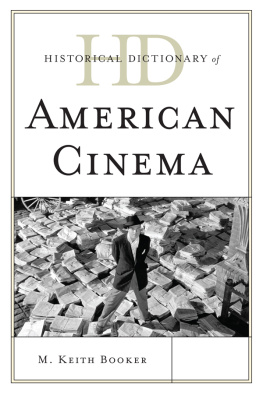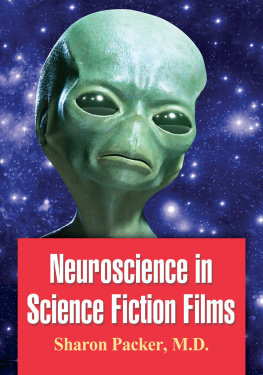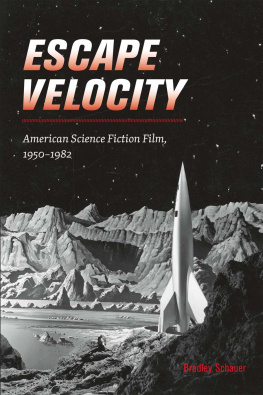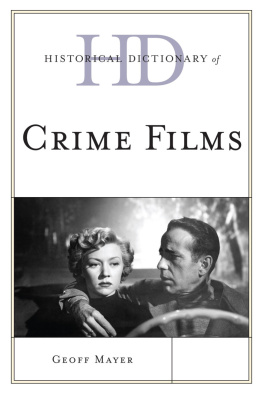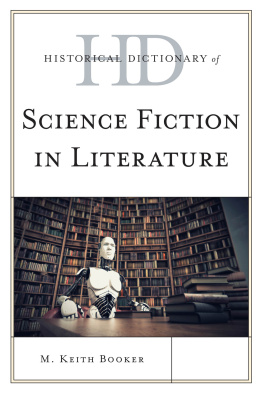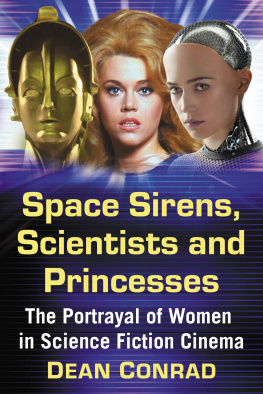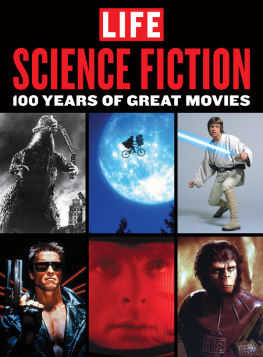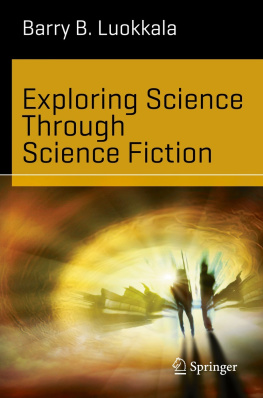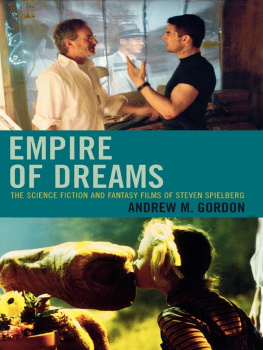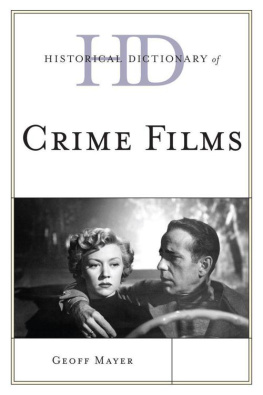Historical Dictionaries of Literature and the Arts
Jon Woronoff, Series Editor
Science Fiction Literature , by Brian Stableford, 2004.
Hong Kong Cinema , by Lisa Odham Stokes, 2007.
American Radio Soap Operas , by Jim Cox, 2005.
Japanese Traditional Theatre , by Samuel L. Leiter, 2006.
Fantasy Literature , by Brian Stableford, 2005.
Australian and New Zealand Cinema , by Albert Moran and Errol Vieth, 2006.
African-American Television , by Kathleen Fearn-Banks, 2006.
Lesbian Literature , by Meredith Miller, 2006.
Scandinavian Literature and Theater , by Jan Sjvik, 2006.
British Radio , by Sen Street, 2006.
German Theater , by William Grange, 2006.
African American Cinema , by S. Torriano Berry and Venise Berry, 2006.
Sacred Music , by Joseph P. Swain, 2006.
Russian Theater , by Laurence Senelick, 2007.
French Cinema , by Dayna Oscherwitz and MaryEllen Higgins, 2007.
Postmodernist Literature and Theater , by Fran Mason, 2007.
Irish Cinema , by Roderick Flynn and Pat Brereton, 2007.
Australian Radio and Television , by Albert Moran and Chris Keating, 2007.
Polish Cinema , by Marek Haltof, 2007.
Old Time Radio , by Robert C. Reinehr and Jon D. Swartz, 2008.
Renaissance Art , by Lilian H. Zirpolo, 2008.
Broadway Musical , by William A. Everett and Paul R. Laird, 2008.
American Theater: Modernism , by James Fisher and Felicia Hardison Londr, 2008.
German Cinema , by Robert C. Reimer and Carol J. Reimer, 2008.
Horror Cinema , by Peter Hutchings, 2008.
Westerns in Cinema , by Paul Varner, 2008.
Chinese Theater , by Tan Ye, 2008.
Italian Cinema , by Gino Moliterno, 2008.
Architecture , by Allison Lee Palmer, 2008.
Russian and Soviet Cinema , by Peter Rollberg, 2008.
African American Theater , by Anthony D. Hill, 2009.
Postwar German Literature , by William Grange, 2009.
Modern Japanese Literature and Theater , by J. Scott Miller, 2009.
Animation and Cartoons , by Nichola Dobson, 2009.
Modern Chinese Literature , by Li-hua Ying, 2010.
Middle Eastern Cinema , by Terri Ginsberg and Chris Lippard, 2010.
Spanish Cinema , by Alberto Mira, 2010.
Film Noir , by Andrew Spicer, 2010.
French Theater , by Edward Forman, 2010.
Choral Music , by Melvin P. Unger, 2010.
Westerns in Literature , by Paul Varner, 2010.
Baroque Art and Architecture , by Lilian H. Zirpolo, 2010.
Surrealism , by Keith Aspley, 2010.
Science Fiction Cinema , by M. Keith Booker, 2010.
Latin American Literature and Theater , by Richard A. Young
and Odile Cisneros, 2010.
Childrens Literature , by Emer OSullivan, 2010.
Historical Dictionary of Science Fiction Cinema
M. Keith Booker
Historical Dictionaries of
Literature and the Arts, No. 44
The Scarecrow Press, Inc.
Lanham Toronto Plymouth, UK
2010
Published by Scarecrow Press, Inc.
A wholly owned subsidiary of The Rowman & Littlefield Publishing Group, Inc.
4501 Forbes Boulevard, Suite 200, Lanham, Maryland 20706
http://www.scarecrowpress.com
Estover Road, Plymouth PL6 7PY, United Kingdom
Copyright 2010 by M. Keith Booker
All rights reserved . No part of this book may be reproduced in any form or by any electronic or mechanical means, including information storage and retrieval systems, without written permission from the publisher, except by a reviewer who may quote passages in a review.
British Library Cataloguing in Publication Information Available
Library of Congress Cataloging-in-Publication Data
Booker, M. Keith.
Historical dictionary of science fiction cinema / M. Keith Booker.
p. cm. (Historical dictionaries of literature and the arts)
Includes bibliographical references.
ISBN 978-0-8108-5570-0 (cloth : alk. paper) ISBN 978-0-8108-7462-6 (ebook)
1. Science fiction filmsDictionaries. I. Title.
PN1995.9.S26B566 2010
791.43'615dc22 2010016612
The paper used in this publication meets the minimum requirements of American National Standard for Information SciencesPermanence of Paper
for Printed Library Materials, ANSI/NISO Z39.48-1992.
Printed in the United States of America
For Benjamin Booker, Skylor Booker,
and Adam Booker.
Editors Foreword
Although it has actually been around since the early days of filmmaking, science fiction cinema is a contemporary and futuristic genre. It deals with events that usually take place at a far-off time and often far-off place; thus it appeals to the human desire to understand and perhaps predict the future. It also helps to explain science and technology and where they could be leading us. Science fiction cinema tackles prickly problems, often in a context that make them more real than realityproblems such as environmental degradation; overpopulation and pressure on space and goods; friction between the sexes, races, and nations; and the coming and substantially greater difficulties in dealing with rogue computers, robots, clones, and possibly even aliens (if we can believe what we see in the movies). Although science fiction cinema is often termed escapism, it is also an attempt to come to terms with a rapidly changing world. Consider the words of the great science fiction author Arthur C. Clarke: We all want to escape occasionally. But science fiction is often very far from escapism, in fact you might say that s cience fiction is escape into reality.... Its a fiction which does concern itself with real issues: the origin of man; our future. In fact I cant think of any form of literature which is more concerned with real issues, reality.
This Historical Dictionary of Science Fiction Cinema is an excellent guide to the field. The chronology illustrates how long the movies have been around and charts some of the major advancesand filmsover the years. The introduction then provides an overview, reminding us that science fiction cinema is hardly monolithic; rather, it consists of different genres, produced in an increasing range of countries, and using varying techniques. The bulk of the information, as usual, appears in the dictionary, with entries on directors, actors, and films. Other entries deal with topics such as monsters, alien invasions, utopia, and dystopia, as well as production sites (half a dozen countries), technical aspects, and new technologies (computer-generated imagery). The bibliography provides resources for further information.
It was written by M. Keith Booker, who is the James E. and Ellen Wadley Roper Professor of English at the University of Arkansas. He is also the director of the universitys Program in Comparative Literature and Cultural Studies. Therefore, Dr. Booker does not simply deal with science fiction in the abstract; he shows how films and their writers, directors, actors, and genres fit into a historical context and relate to us in the present. He has also written dozens of books on literature and popular culturemore broadly and more specifically, half a dozen books on science fiction, with two recent publications dealing with science fiction cinema: Alternative Americas: Science Fiction Film and American Culture and The Science Fiction Handbook. This volume, therefore, presents a wealth of experience and knowledge for a variety of audiences.
Jon Woronoff
Series Editor
Preface
The first film I ever saw in a theater, at the age of five, was Queen of Outer Space (1958)exactly the sort of film that, in some circles, has given science fiction cinema a bad name. Among other things, I know that the film was being offered as a Saturday-morning childrens matinee at a reduced admission, which I supposed answers the question of why my parents took me to see such a film in the first place. It also indicates the way in which, by 1958, science fiction film was being regarded as childish. Still, seeing the big screen for the first time, I was mesmerized and still vividly remember the texture of the experience, if not the details of what I actually saw. Ive been fascinated by filmand especially by science fiction filmever since. Much of my work as a professional cultural critic has been devoted to the topic, particularly to exploring the ways in which science fiction film can be a serious and sophisticated cultural phenomenon that is not kids stuff at all.


